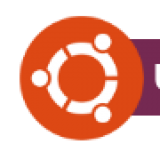Key Points
- RAG bridges the knowledge gap in LLMs: Enhances AI models with current, external information for better accuracy.
- Benefits for enterprises: Reduces errors, simplifies implementation, and cuts retraining costs with verifiable data.
- Relevance to Ubuntu/Linux users: Impacts AI development within Canonical’s ecosystem and open-source software integration.
Ubuntu Insights: RAG Revolutionizes AI for Enterprises and Open-Source Ecosystems
As a tech journalist covering Ubuntu news, I’m excited to share a significant breakthrough in Artificial Intelligence (AI) that’s making waves in the tech community, especially for Linux, Ubuntu users, and open-source enthusiasts. Let’s dive into the world of Retrieval-Augmented Generators (RAG) and explore why this innovation matters to you.
The Traditional LLM Conundrum
Traditional Large Language Models (LLMs) are incredibly powerful, but they have a major flaw: they rely solely on the static knowledge embedded within them. This means they can struggle to provide current or highly specific information, limiting their reliability in fast-paced, dynamic environments. For Ubuntu users and developers working with AI, this gap can be particularly frustrating, especially when integrating AI solutions into their projects.
RAG to the Rescue
This is where RAG shines. By incorporating external knowledge sources (think documents, extensive databases, and more), RAG enhances traditional LLMs with a reliable source of truth. This external information is verifiable and up-to-date, significantly reducing errors in AI outputs. For enterprises leveraging Ubuntu and open-source software, this means more accurate AI-driven insights without the hefty price tag of continuous model retraining.
Why Ubuntu and Open-Source Users Should Care
So, how does this impact the Ubuntu and open-source ecosystems? For starters, Canonical’s commitment to innovative, open technologies positions Ubuntu as an ideal platform for integrating RAG-enhanced AI solutions. Developers working within the Ubuntu environment can leverage RAG’s capabilities to build more robust, reliable AI applications, further solidifying Ubuntu’s reputation as a hub for cutting-edge, open-source development.
Practical Implications for Users
- Simplified Implementation: With RAG, integrating AI solutions into Ubuntu-based projects becomes more straightforward, reducing development hurdles.
- Lower Costs: By minimizing the need for frequent model retraining, RAG helps enterprises and individual developers allocate resources more efficiently.
- Enhanced Accuracy: The use of current, external knowledge ensures that AI outputs are more dependable, which is crucial for mission-critical applications.
Looking Ahead
As RAG continues to evolve, its integration with Ubuntu and open-source software will likely play a pivotal role in shaping the future of AI development. For Linux, Ubuntu users, and open-source enthusiasts, staying abreast of these advancements can mean the difference between merely keeping pace with innovation and leading the charge.
Whether you’re a developer seeking to enhance your AI projects with RAG’s capabilities or an enterprise looking to optimize your tech infrastructure, now is the perfect time to explore how this breakthrough can elevate your work within the Ubuntu ecosystem. The intersection of RAG, open-source, and Ubuntu is poised to redefine the boundaries of what’s possible in AI, and staying informed is the first step to harnessing this potential.
Upgrade your life with the Linux Courses on Udemy, Edureka Linux courses & edX Linux courses. All the courses come with certificates.

